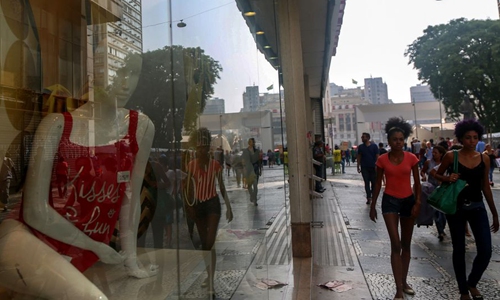HOME >> SOURCE
Brazil's industrial output shrinks 1.1 pct in 2019
Source:Xinhua Published: 2020/2/5 14:59:25

People walk on a commercial street in downtown Sao Paulo, Brazil, on Dec. 2, 2015. (Xinhua/Rahel Patrasso)
Brazil's industrial production fell 1.1 percent in 2019 compared to the year before, putting an end to consecutive years of growth, the state-run Brazilian Geography and Statistics Institute (IBGE) said on Tuesday.
According to the institute's report, production decreased mainly as a result of Brazil's largest ever mining disaster, which forced Vale, one of the country's largest companies, to temporarily idle production at its mine in Brumadinho.
"The impact of the extraction industry had a great influence on these negative results," the IBGE said, citing the "collapse of the tailings dam in Brumadinho at the start of 2019."
Another factor dampening productivity was the country's high unemployment rate, "which impacts domestic demand," said the institute.
Between 2014 and 2016, Brazilian industry suffered from the country's economic crisis. The economy then bounced back, growing 2.5 percent in 2017 and 1 percent in 2018.
In December 2019, industrial production shrank 0.7 percent compared to November, marking the second month of negative growth and the worst turnout for December since 2015.
In fact, industrial performance in December was 18 percent below Brazil's best month on record, May 2011.
"In terms of production levels, it is as if we were returning to the pace of January 2009," the IBGE said.
The extraction industry topped the worst-performing sectors in 2019, falling 9.7 percent. It was followed by maintenance, repair and installation of machinery and equipment (-9.1 percent); cellulose, paper and byproducts (-3.9 percent); and metallurgy (-2.9 percent).
Sectors that saw some growth included metal products (5.1 percent); vehicles and trucks (2.1 percent); coke, petroleum byproducts and biofuels (1.7 percent); and foods (1.6 percent).
Posted in: ECONOMY,BIZ FOCUS